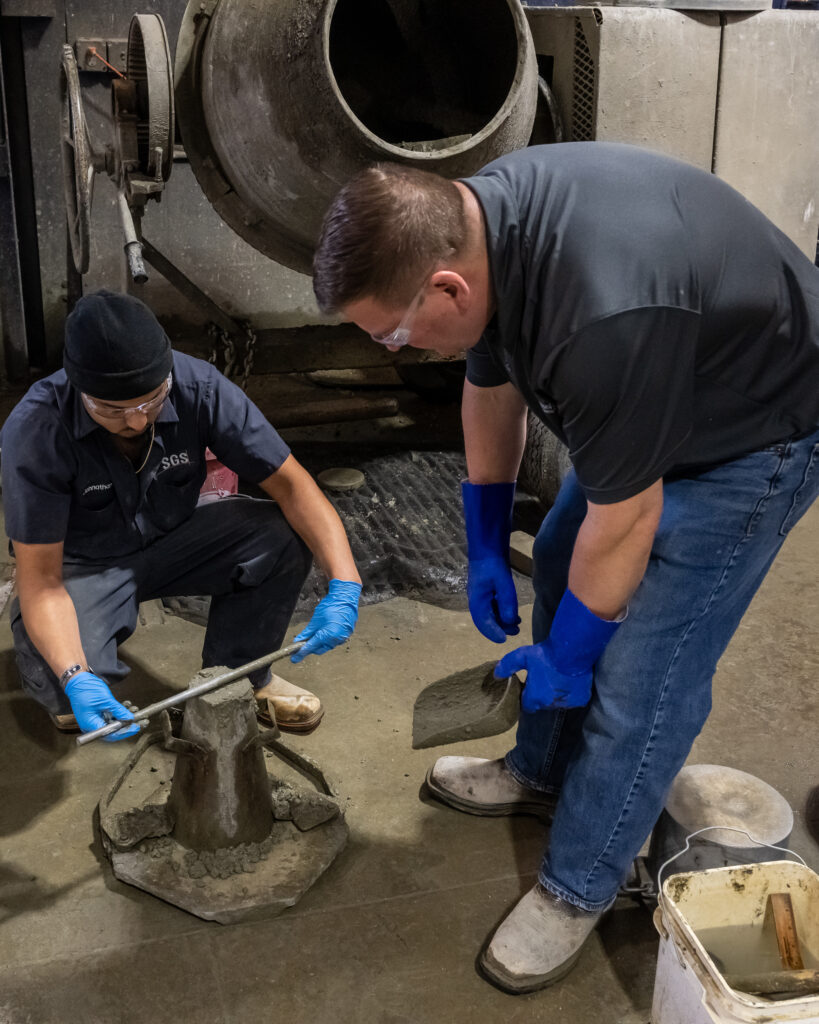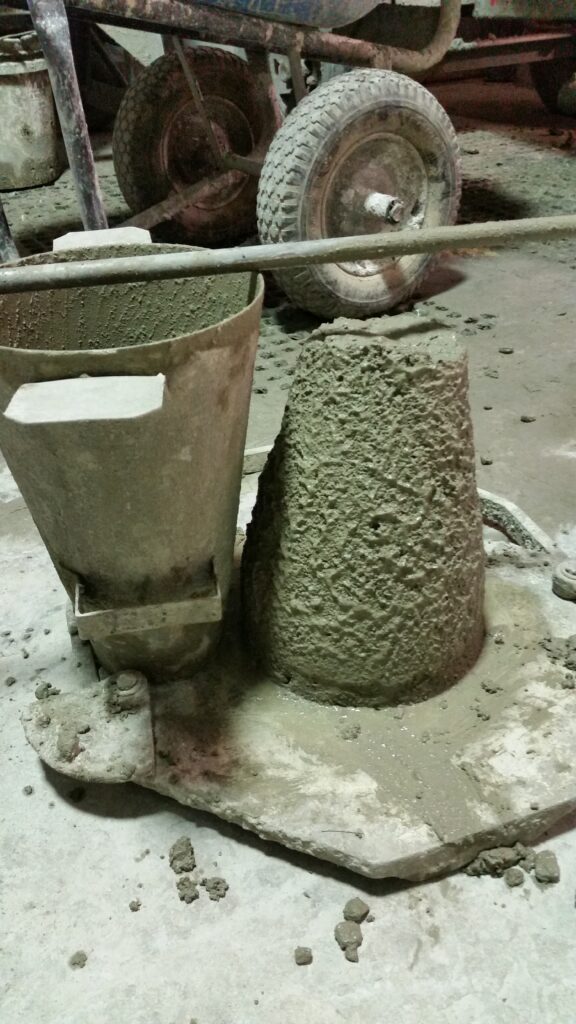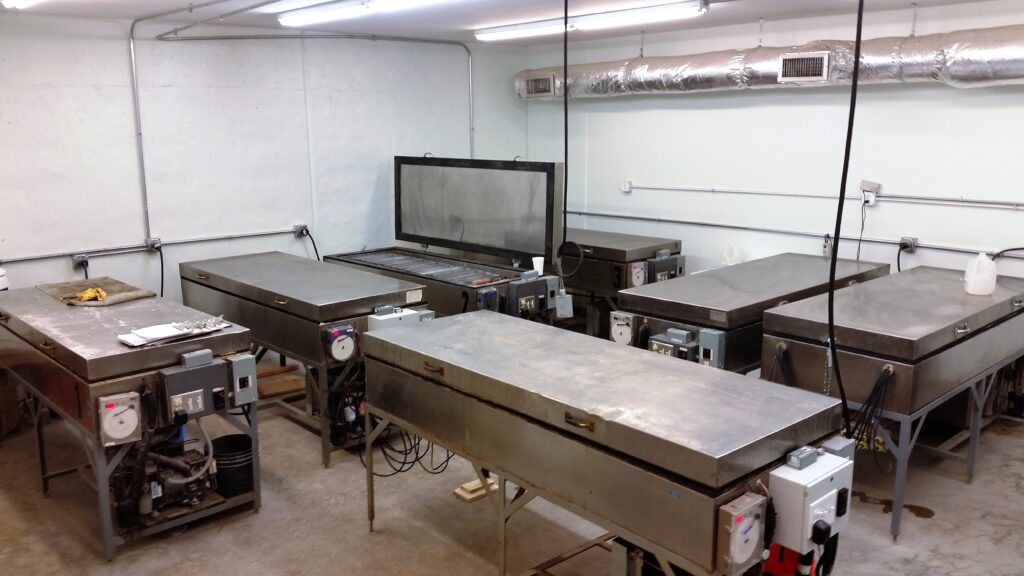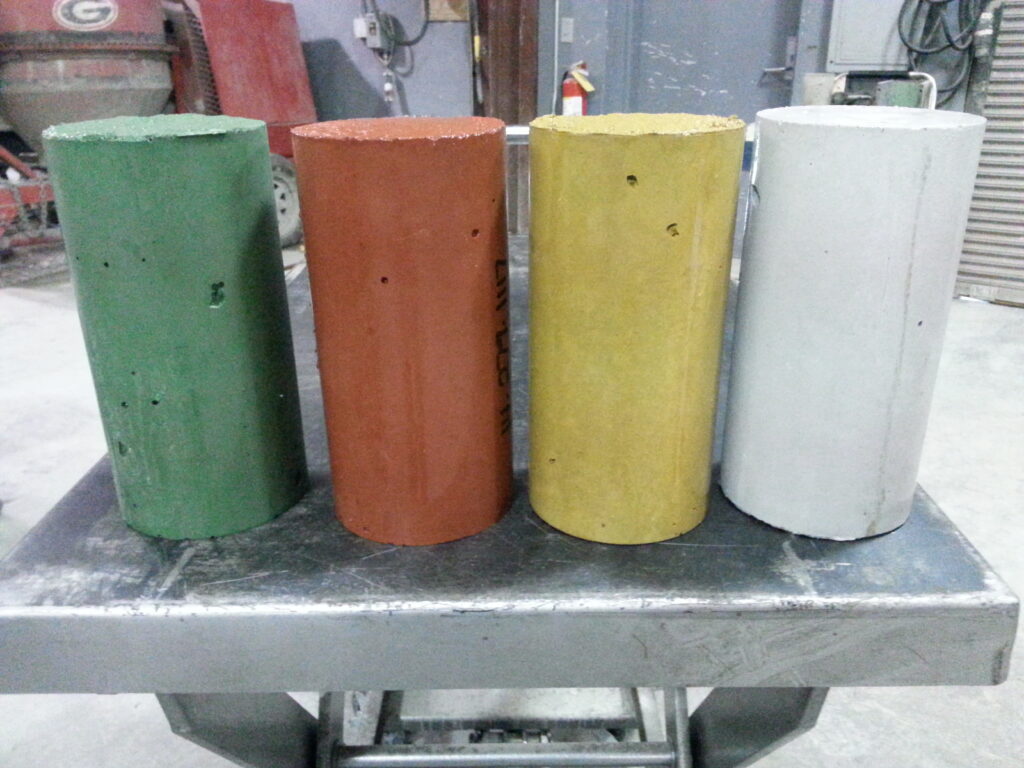
Laboratory Testing
Thanks to admixtures we are able to alter the performance of concrete in ways that previously were not possible
Chemical admixtures have become an important part of everyday concrete production. There are several types of admixtures used to support the overall quality of your concrete and these mixtures require testing.
Types of Admixtures
- Water Reducing Admixtures – Low range, mid-range and high range that allow you to reduce water in concrete, therefore increasing the strength of the concrete.
- Retarding and Accelerating Admixtures allow you vary the setting time of the concrete.
- Shrinkage Reducing Admixtures are used to minimize shrinkage in concrete and subsequently the tendency of cracking.
- Alkali-Silica (ASR) Suppressing Admixtures help mitigate or suppress ASR.
- Air Entraining Admixtures which allow the concrete producer to control the amount of air in a concrete mix. The air content in concrete often determines how well it will withstand freezing and thawing
- Viscosity Modifiers – Often used for Self Consolidating concrete, pouring underwater, or creating anti-washout properties
Contact an expert today to make sure your admixtures meet the requirements needed.





Test Methods
| ASTM C31 | Making and Curing Concrete Tests Specimens in the Field |
| ASTM C33 | Specification for Concrete Aggregates |
| ASTM C39 | Compressive Strength of Cylindrical Concrete Specimens |
| ASTM C78 | Flexural Strength of Concrete |
| ASTM C136 | Sieve Analysis of Fine and Coarse Aggregates |
| ASTM C138 | Density, Yield, and Air Content of Concrete |
| ASTM C143 | Slump of Hydraulic Cement Concrete |
| ASTM C150 | Specification for Portland Cement |
| ASTM C157 | Length Change of Hardened Hydraulic-Cement Mortar and Concrete |
| ASTM C172 | Sampling Freshly Mixed Concrete |
| ASTM C173 | Air Content of Freshly Mixed Concrete by the Volumetric Method |
| ASTM C185 | Air Content of Hydraulic Cement Mortar |
| ASTM C192 | Making and Curing Concrete Test Specimens in the Laboratory |
| ASTM C215 | Fundamental Transverse, Longitudinal and Torsional Frequencies of Concrete Specimen |
| ASTM C231 | Air Content of Freshly Mixed Concrete by the Pressure Method |
| ASTM C232 | Bleeding of Concrete |
| ASTM C233 | Air-Entraining Admixtures for Concrete |
| ASTM C260 | Specification for Air-Entraining Admixtures for Concrete |
| ASTM C293 | Standard Test Method for Flexural Strength of Concrete (Using Simple Beam with Center-Point Loading) |
| ASTM C295 | Guide for Petrographic Examination of Aggregates for Concrete |
| ASTM C387 | Standard Specification for Packaged, Dry, Combined Materials for Concrete and High Strength Mortar |
| ASTM C403 | Time of Setting of Concrete Mixtures by Penetration Resistance |
| ASTM C418 | Abrasion Resistance of Concrete by Sandblasting |
| ASTM C482 | Bond Strength of Ceramic Tile to Portland Cement Paste |
| ASTM C494 | Specification for Chemical Admixtures for Concrete |
| ASTM C511 | Moist Cabinets, Moist Rooms, and Water Storage Tanks Used in the Testing of Hydraulic Cements and Concretes |
| ASTM C512 | Creep of Concrete and Compression |
| ASTM C567 | Determining Density of Structural Lightweight Concrete |
| ASTM C617 | Capping Cylindrical Concrete Specimens (for 7000 psi and below) |
| ASTM C666 | Resistance of Concrete to Rapid Freezing and Thawing |
| ASTM C684 | Making, Accelerated Curing, And Testing Concrete Compression Test Specimen |
| ASTM C805 | Rebound Number of Hardened Concrete |
| ASTM C827 | Change in Height at Early Ages of Cylindrical Specimen of Cementitious Mixtures |
| ASTM C856 | Petrographic Examination of Aggregates of Harding Concrete |
| ASTM C878 | Restrained Expansion of Shrinkage-Compensating Concrete |
| ASTM C939 | Flow Of Grout for Preplaced-Aggregate Concrete (Flow Cone Method – Pre-Mixed Grou |
| ASTM C942 | Compressive Strength of Grouts for Preplaced-Aggregate Concrete in the Laboratory (Pre-mixed Grout) |
| ASTM C989 | Standard Specification for Slag Cement for Use in Concrete and Mortars |
| ASTM C1017 | Specification for Chemical Admixtures for Use in Producing Flowing Concrete |
| ASTM C1064 | Temperature of the Freshly Mixed Hydraulic-Cement Concrete |
| ASTM C1074 | Estimating Concrete Strength by the Maturity Method |
| ASTM C1077 | Standard Practice for Agencies Testing Concrete and Concrete Aggregates |
| ASTM C1090 | Estimating Concrete Strength by the Maturity Method |
| ASTM C1105 | Length Change of Concrete due to Alkali-Carbonate Rock Reaction |
| ASTM C1138 | Abrasion Resistance of Concrete (Underwater Method) |
| ASTM C1152 | Standard Test Method for Acid-Soluble Chloride in Mortar and Concrete |
| ASTM C1218 | Standard Test Method for Water-Soluble Chloride in Mortar Concrete |
| ASTM C1231 | Use of Unbonded Caps in Determination of Compressive Strength of Hardened Concrete Cylinders |
| ASTM C1383 | Measuring the P-Wave Speed and the Thickness of Concrete Plates Using the Impact-Echo Method |
| ASTM C1542 | Making Length of Concrete Cores |
| ASTM C1550 | Flexural Toughness of Fiber Reinforced Concrete (Using Central Loaded Round Panels) |
| ASTM C1557 | Tensile Strength & Young’s Modulus of Fibers |
| ASTM C1567 | Determining the Potential Alkali-Silica Reactivity of Combinations of Cementitious Materials and Aggregate (Accelerated mortar-bar method) |
| ASTM C1610 | Standard Test Method for Static Segregation of Self Consolidating Concrete Using Column Technique |
| ASTM C1611 | Standard Test Method for Slump Flow of Self Consolidating Concrete |
| ASTM C1621 | Standard Test Method for Passing Ability of Self Consolidating Concrete by J-Ring |
| ASTM C1697 | Standard Specification for the Blending of Supplementary Cementitious Materials |
| ASTM C1712 | Standard Test Method for Rapid Assessment of Static Segregation Resistance of Self-Consolidating Concrete Using Penetration Test |
| ASTM C1741 | Water Permeability of Concrete |
| ASTM C1758 | Standard Practice for Fabrication Test Specimens with Self-Consolidating Concrete |
| ASTM C1812 | Standard Practice for Design of Journal Bearing Supports to be used in Fiber Reinforced Concrete Beam Tests |
| ASTM D4060 | Standard Test Method for Abrasion Resistance of Organic Coating by the Taber Abrasion |
| ASTM D7508 | Standard Specifications for Polyolefin Chopped Strands for Use in Concrete |
| ASTM E329 | Standard Specification for Agencies Engaged in the Testing and/or Inspection of Materials Used in Construction |
| ASTM G109 | Determining Effects of Chemical Admixtures on Corrosion of Embedded Steel Reinforcement in Concrete Exposed to Chloride Environments |
| ISO/IEC 17025 | Establishing and Implementing a Quality System for Construction Materials Testing Laboratories |
| ICC-ES AC 198 | Acceptance Criteria for Chemical Admixtures Used in Concrete |
| ICC-ES AC 383 | Polyolefin Chopped Strands for Use in Concrete |
| ICC-ES AC 32 | Acceptance Criteria for Concrete with Synthetic Fibers |
| ICC-ES AC 51 | Acceptance Criteria for Precast Stone Veneer |
| ICC-ES AC 208 | Acceptance Criteria for Steel Fibers in Concrete |
| CRD-C12 | Air-Entraining Admixtures for Concrete |
| CRD-C13 | Specification for Air-Entraining Admixtures for Concrete |
| CRD-C48 | Standard Test Method for Water Permeability of Concrete |
| CRD-C61 | Test Method for Determining the Resistance of Freshly Mixed Concrete to Washing Out in Water |
| CRD-C87 | Specification for Chemical Admixtures for Concrete |
| CRD-C88 | Specification for Chemical Admixtures for Use in Producing Flowing Concrete |
| CRD-C661 | Specification for Anti-washout Admixtures for Concrete |
